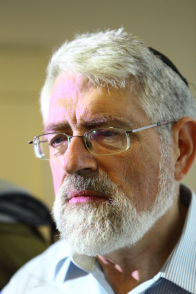Terrence Joseph Sejnowski is the Francis Crick Professor at the Salk Institute for Biological Studies where he directs the Computational Neurobiology Laboratory and is the director of the Crick-Jacobs center for theoretical and computational biology. He has performed pioneering research in neural networks and computational neuroscience.

Bernardo Huberman is a fellow and vice president of the Next-Gen Systems Team at CableLabs. He is also a consulting professor in the Department of Applied Physics and the Symbolic System Program at Stanford University.

The International Institute for Neurosciences of Natal - Edmond and Lily Safra is located in Natal, capital city of the Brazilian state of Rio Grande do Norte. It was projected and is directed by neuroscientist Miguel Nicolelis. The IINN aims to decentralize research in Brazil, currently restricted to South and Southeast regions of Brazil.
Theo Geisel is a German physicist. Geisel is a director at the Max Planck Institute for Dynamics and Self-Organization and professor of theoretical physics at the University of Göttingen. His research is primarily concerned with the behavior of complex systems ranging from theoretical investigations in quantum chaos to nonlinear phenomena occurring in the brain.
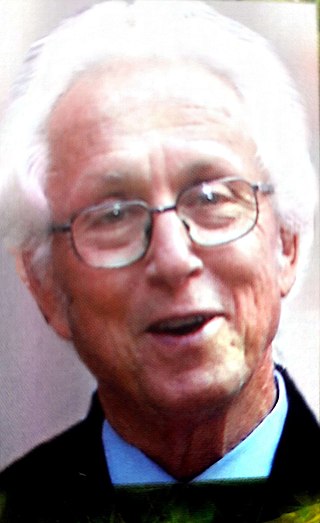
Daniel J. Amit Hebrew: דניאל עמית was an Israeli physicist and pacifist, who was one of the pioneers in the field of computational neuroscience. Amit, Hanoch Gutfreund and Haim Sompolinsky, in a set of papers referred to as the ASG papers, were the first to demonstrate the utility of statistical mechanics in neural network research and helped establish theoretical and computational neuroscience as a novel approach that brings into brain research unique powerful sets of concepts, models, and standards of rigour.

William Samuel Bialek is a theoretical biophysicist and a professor at Princeton University and The Graduate Center, CUNY. Much of his work, which has ranged over a wide variety of theoretical problems at the interface of physics and biology, centers around whether various functions of living beings are optimal, and whether a precise quantification of their performance approaches limits set by basic physical principles. Best known among these is an influential series of studies applying the principles of information theory to the analysis of the neural encoding of information in the nervous system, showing that aspects of brain function can be described as essentially optimal strategies for adapting to the complex dynamics of the world, making the most of the available signals in the face of fundamental physical constraints and limitations.

Eshel Ben-Jacob, was a theoretical and experimental physicist at Tel Aviv University, holder of the Maguy-Glass Chair in Physics of Complex Systems, and Fellow of the Center for Theoretical Biological Physics (CTBP) at Rice University. During the 1980s he became a leader in the theory of self-organization and pattern formation in open systems, later extending this work to adaptive complex systems and biocomplexity. In the late 1980s, he turned to study of bacterial self-organization, He developed new pattern forming bacteria species, becoming a pioneer in the study of bacterial intelligence and social behaviors of bacteria.
The Computation and Neural Systems (CNS) program was established at the California Institute of Technology in 1986 with the goal of training Ph.D. students interested in exploring the relationship between the structure of neuron-like circuits/networks and the computations performed in such systems, whether natural or synthetic. The program was designed to foster the exchange of ideas and collaboration among engineers, neuroscientists, and theoreticians.
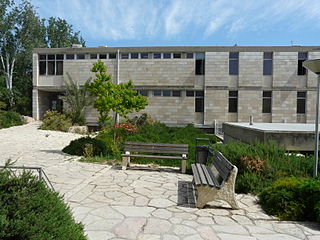
The Racah Institute of Physics is an institute at the Hebrew University of Jerusalem, part of the faculty of Mathematics and Natural Sciences on the Edmund J. Safra Campus in the Givat Ram neighborhood of Jerusalem.
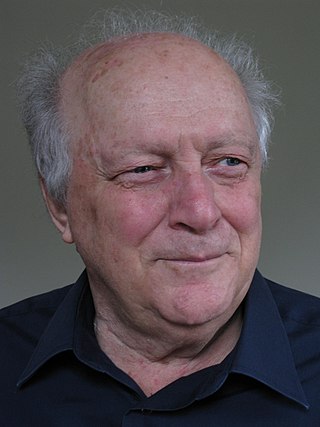
Moshe Abeles is an Israeli brain researcher and neurophysiologist. He is emeritus professor at the Hebrew University in Jerusalem and at the Life Science Faculty of Bar Ilan University in Ramat Gan.
Laurence Frederick Abbott is an American theoretical neuroscientist, who is currently the William Bloor Professor of Theoretical Neuroscience at Columbia University, where he helped create the Center for Theoretical Neuroscience. He is widely regarded as one of the leaders of theoretical neuroscience, and is coauthor, along with Peter Dayan, on the first comprehensive textbook on theoretical neuroscience, which is considered to be the standard text for students and researchers entering theoretical neuroscience. He helped invent the dynamic clamp method alongside Eve Marder.
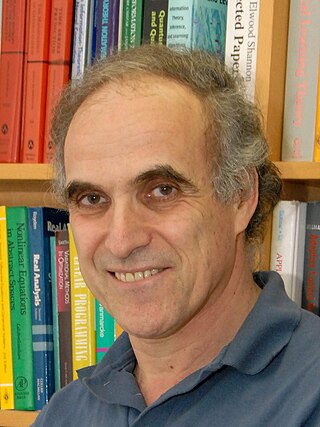
Naftali "Tali" Tishby was a professor of computer science and computational neuroscientist at the Hebrew University of Jerusalem.
Carina Curto is an American mathematician, a professor at Pennsylvania State University, and a Sloan Research Fellow. She is known for her work on mathematical neuroscience, including the applications of mathematics in both theoretical and computational neuroscience. Her recent work is funded by the BRAIN Initiative. She is an associate editor at SIAGA, a SIAM journal on applied algebra and geometry and on the editorial board at Physical Review Research.
Misha Tsodyks is a leading theoretical and computational neuroscientist whose research focuses on identifying neural algorithms underlying cortical systems and cognitive behavior. His most notable achievements include demonstrating the importance of sparsity in neural networks, describing the mechanisms of short-term synaptic plasticity and working and associative memory.
Surya Ganguli is a university professor at Stanford University and a visiting research professor at Google. Ganguli is primarily known for his work on neural networks and deep learning, although he has also published papers on theoretical physics. He presently runs the Neural Dynamics and Computation Lab at Stanford, where he aims to reverse engineer how networks of neurons and synapses cooperate across multiple scales of space and time to facilitate sensory perception, motor control, memory, and other cognitive functions. He is also known for being a prolific public speaker and lecturer, having been invited to give over 200 talks at various universities, institutes, workshops, conferences, and symposiums since 2005.

Ila Fiete is an Indian–American physicist and computational neuroscientist as well as a Professor in the Department of Brain and Cognitive Sciences within the McGovern Institute for Brain Research at the Massachusetts Institute of Technology. Fiete builds theoretical models and analyses neural data and to uncover how neural circuits perform computations and how the brain represents and manipulates information involved in memory and reasoning.

Kanaka Rajan is a computational neuroscientist in the Department of Neurobiology at Harvard Medical School and founding faculty in the Kempner Institute for the Study of Natural and Artificial Intelligence at Harvard University. Rajan trained in engineering, biophysics, and neuroscience, and has pioneered novel methods and models to understand how the brain processes sensory information. Her research seeks to understand how important cognitive functions — such as learning, remembering, and deciding — emerge from the cooperative activity of multi-scale neural processes, and how those processes are affected by various neuropsychiatric disease states. The resulting integrative theories about the brain bridge neurobiology and artificial intelligence.
Tatjana Tchumatchenko is a physicist in the field of theoretical neuroscience. She is an independent Max Planck Group Leader and, since November 2020, professor for Computational Neuroscience of Behavior at the Faculty of Medicine of the Rheinische Friedrich-Wilhelms-Universität Bonn (Germany). In her research she investigates how neural networks compute and how particular activity patterns emerge from synaptic and neuronal features.
Naomi Habib (Hebrew: נעמי חביב) is an Israeli computational neuroscientist who researches cognitive decline and resilience. She has worked as the Goren-Khazzam Lecturer in Brain Sciences and an assistant professor at the Hebrew University of Jerusalem since 2018.
Ehud Zohary is an Israeli scientist, professor of neurobiology at the Edmond and Lilly Safra Center for Brain Science and Alexander Silberman Institute of Life Sciences, the Hebrew University of Jerusalem.
